Today’s feature is from correspondent Dave Spaulding.
Few teach something because they believe it’s inferior. I’m happy to say the majority of firearms instructors teach their doctrine because they believe it to be the best. That said, I also think there is a current trend to teach stuff that is cool looking and designed to make the shooter feel like a special-ops commando for a fantasy weekend. Does this prepare you for actual conflict? The apparent objective is to make money; I hate believing this, but this seems to be the current circumstance.
A while back, a good friend attended a course during which he shot 1,000 rounds a day over a two-day period. He never shot further back than 15 feet and no instruction was given on how to develop needed skills except moving all the time no matter what was happening. The movement was minimal due to the large number of students on the firing line. This led my friend to believe the movement hurt his ability to shoot accurately more than it kept him from getting shot. The class shot this large amount of ammo with no shot placement encouraged or skills developed and it was called “combat shooting.”
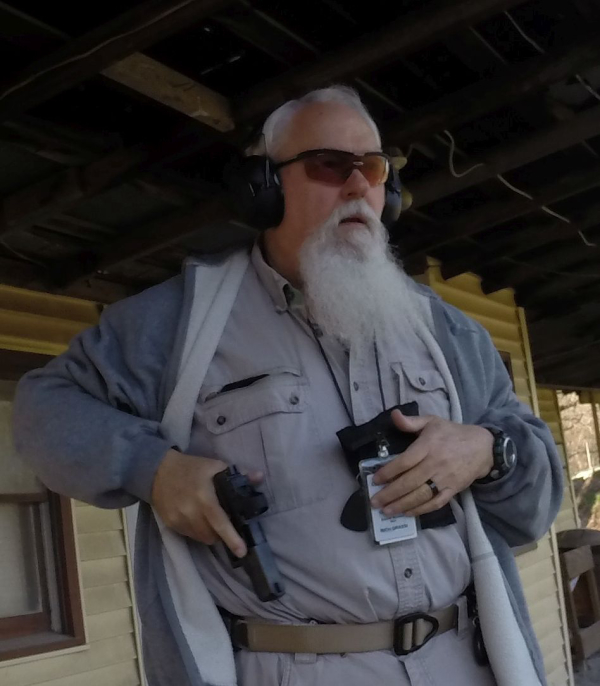
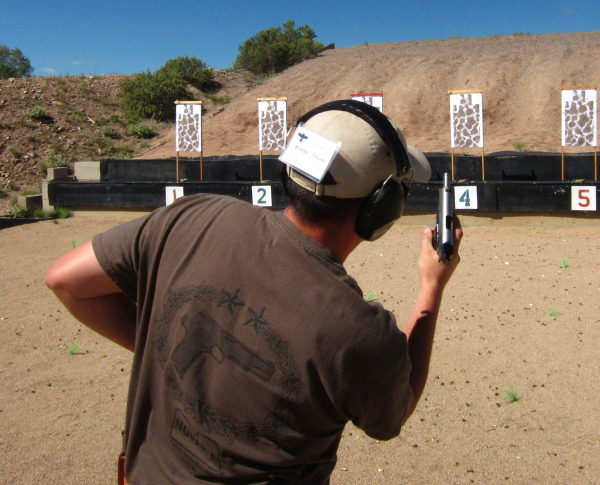
I could not help but think the course was two things: One, “a license to suck” (shoot poorly) but feel good about it and two, an attempt to make money with no skills taught. In the end, the students apparently felt really good about themselves…even thanking the instructors for all the “instruction” … forgetting they still could not shoot well enough to save their own lives.
To me, a person becomes a combative firearms instructor because they want to save lives… to help good guys and gals prevail when their life or the lives of loved ones are on the line. It’s about offering solutions to real problems, not imparting personal doctrine at the cost of all else. When it comes to training cops, I do so because these are people who willingly place themselves in harm’s way to protect society and whether they are “into guns” or not, they need to be able to shoot well enough to save their lives and the lives of those they protect… nothing more, nothing less. If the cops lose, what does that do for the rest of society?
I also believe there is a trend for instructors to create their own definitions for particular words to support their doctrine. I don’t think there’s anything wrong with this, but I prefer to refer to my old coverless, dog-eared, worn out, paperback edition of the Webster’s Dictionary for such info. A few years back, after hearing some students complain about spending too much time working on shooting fundamentals, I looked to Mr. Webster to see exactly what the word fundamental meant. What I discovered was “forming a foundation or basis; basic; essential”. Essential? Wow, that sounds important and it led me to seek out the meaning of essential: “Absolutely necessary; indispensable –n. something necessary or fundamental.”
Let me make this perfectly clear so there is no misunderstanding: shooting fundamentals are absolutely necessary, they are indispensable. In other words, they are essential. It doesn’t matter if you are shooting combatively or competitively, one’s ability to grip the gun, control the trigger, present from various positions or the holster, manipulate the gun and clear stoppages is non-negotiable. While they might not be as fun as “advanced” skills (high speed, low drag -whatever that is), it would be wise to remember the words of Bruce Lee over 40 years ago, ”advanced skills are the basics mastered.”
I would also call your attention to the words of the late, great Louis Awerbuck, “there is no advanced gunfight.” I have been training cops for four decades and I wish I had a nickel for every complaint I’ve heard while spending training time trying to anchor these essential skills. Phrases like “They’re boring,” “We’ve done these before,” or “Let’s get on to the advanced stuff” are often heard. But just because you have performed or practiced them before does not mean you are good at them.
The goal behind instruction followed by practice is to absorb then master a particular skill; to try to anchor it in one’s skill set as best as time will allow. Just because one can perform a particular skill without stress does not mean they perform it well enough in conflict; thus, we continue to practice. Few law enforcement officers or armed citizens will get the training and follow up practice to achieve true unconscious competence, where they can perform a skill on “auto pilot.” The brain can remember doing something in the past, but it leaves out the part where it takes five or six seconds to complete the given act which is tactically unacceptable.
Lt. Frank McGee, the former head of the NYPD Firearms Training Unit, once said armed conflict involving police could be broken down to a “Rule of Three” -- three rounds, three yards, three seconds. Don’t confuse this with a range drill; consider lag time and target discrimination.
The point is armed conflict, especially involving the handgun, is close, fast and the event is over quickly with one or more people down, possibly dead. Of course, there is also the possibility that no one is hit, which happens more often than many realize. That said, someone shooting back at you changes everything, which is why essential skills must be practiced to the point of “automaticity” as there is no time to sort it out mentally. There will be no time to “orient” to what is happening, you will either rise to the occasion or you will not. The history of armed conflict has shown the person who can go from observation to action the quickest will usually prevail regardless of how tight a group they can shoot on the square range. Luck does play a part, but I refuse to fall into the old adage “I’d rather be lucky than good” as I have found the better, more skilled I have become the luckier I get.
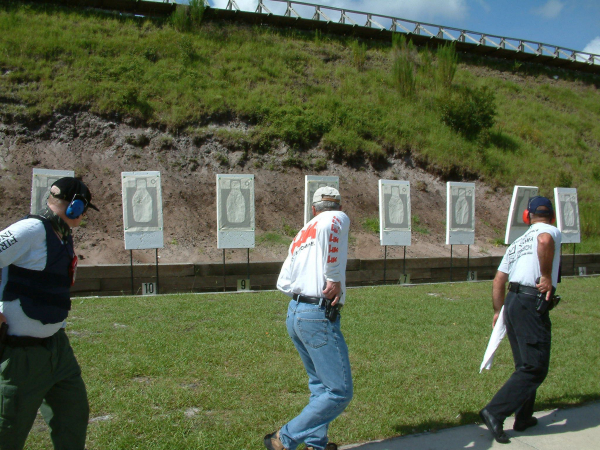
The essentials are essential to fight instantly along with a cool head and commitment to the task. We have known for a long time that the person who has confidence in their skills will better control fear and fight harder or with greater ability in conflict. Have you practiced your essential skills to the point required for such a high level of confidence in pandemonium? It is something good to know ahead of time.
A dose of harsh reality is in order…there is no way to prepare for every potential situation you may face in a gunfight. It just can’t be done as the variables are too great, but that does not mean you can’t prepare. The truth is, armed conflict is situationally dependent on terrain, weather, number of combatants, what happens during the fight itself, personal skill level and commitment of the combatants -- just to name a few variables. The person who can best adapt their essential skills to the fight will likely win.
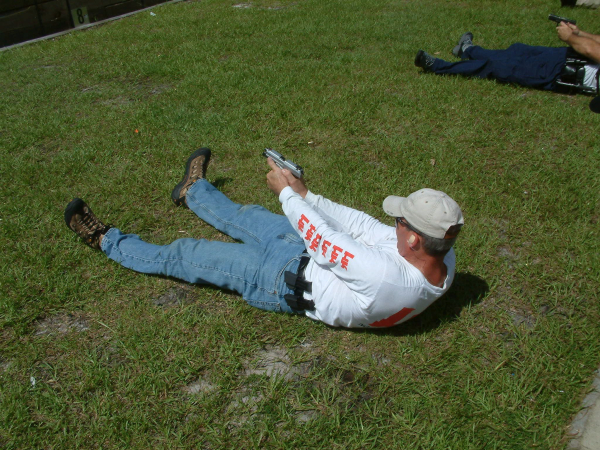
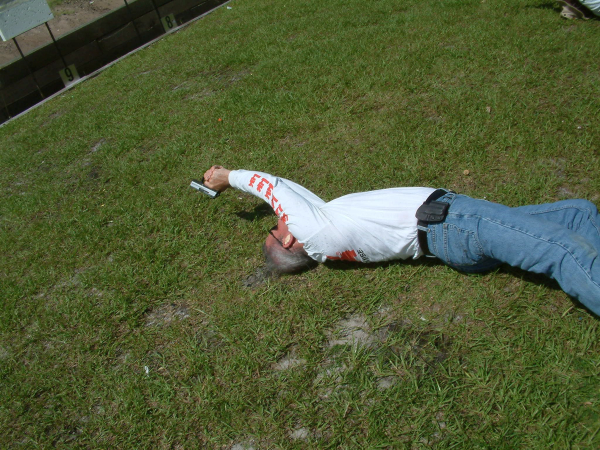
For example, you are sitting in a car when the fight breaks out, how different is drawing from a seated position in a vehicle than standing on the range? The physical action is similar, but the shooter must lean forward to make room in the seat for the arm to move back and draw, then clear the steering wheel and either shoot out the window or through the windshield. It is the same but different, if you see what I mean. The draw stroke must be adapted to the situation at hand.
Train the essentials on the range with the mindset you will have to shoot in varied positions so practice seated, on the ground, from behind objects, on stairs, in hallways, rain, snow – adapt. This does not have to be on a range but can be accomplished in your home via dry fire or in similar environments with Airsoft. Be innovative and it will save your life. “War game” scenarios in your head or from actual events reported on line or in the news and work them out, recreate them or even develop solutions while practicing. All of this will better prepare you for the fight of your life - for your life. It’s up to you as we must all be active participants in our own rescue, as nothing else will do.
Dave Spaulding is a professional firearms instructor with 36 years' experience in Law Enforcement and Federal Security. The recipient of the 2010 Law Enforcement Trainer of the Year Award from the International Law Enforcement Training and Educators Association (ILEETA), Dave has worked in all facets of law enforcement including communications, corrections, court security, patrol, evidence collection, training and investigations. He was a founding member of his agency’s SWAT Team and acted as its training officer for 8 years. He spent a year in an undercover capacity and was the commander of a multi-jurisdictional narcotics task force, has been an adjunct instructor at the former Heckler & Koch International Training Division and the Tactical Defense Institute. In addition to his many published articles (over 1,400), Dave is the author of two acclaimed books, Defensive Living and Handgun Combatives. He operated his own training company with focus on “the combative application of the handgun” www.handguncombatives.com.
